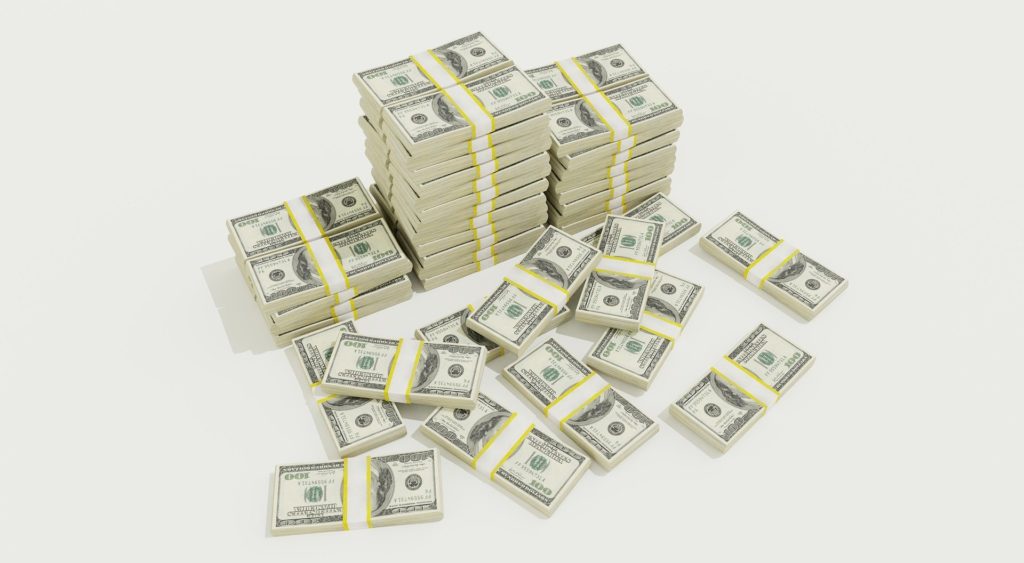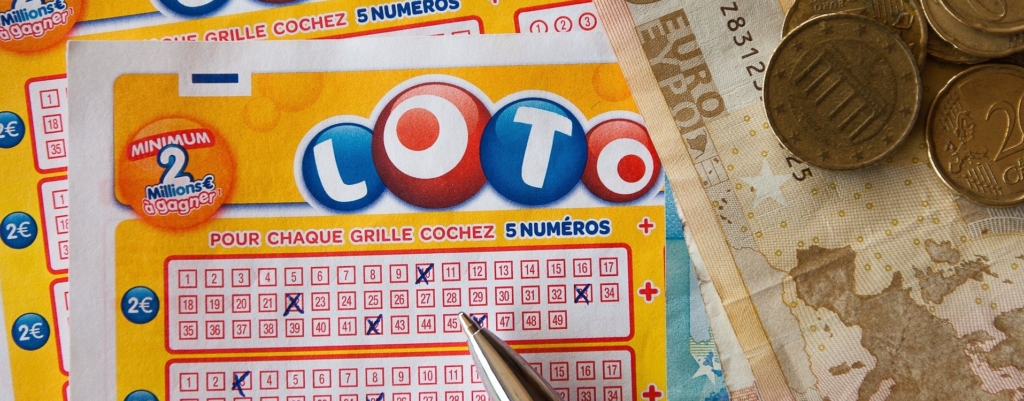Becoming a millionaire isn’t a pipedream, but it isn’t easy. Reaching millionaire status is the natural result of hard work, shrewd investments or smart risk-taking. In this article, we’ll explain how to become a millionaire through many different routes. We hope this will inspire you to research lucrative careers, exciting business opportunities or powerful investments after reading.
As well as setting out the best ways to become a millionaire, we’ll answer your other millionaire questions such as what is a paper millionaire, and is a million pounds enough to instantly retire on?
How to become a millionaire

There are 7 proven routes to becoming a millionaire. We’ve ranked them from easiest to hardest (or at least mostly out of your control):
- Regularly invest in the stock market
- Reach the top of a professional or managerial career ladder
- Build a property portfolio
- Start and grow a business
- Become an angel investor
- Receive inheritance
- Win the lottery
1. How to become a millionaire by regularly investing in the stock market

Investing in the stock market over time is a simple and time-tested way to become a millionaire.
We believe that this is the easiest and most widely accessible opportunity to increase your net worth to £1m.
To invest your way to a cool million with an effective investment portfolio, you don’t need to:
- Be a financial genius
- Spend hours reading financial news sources
- Have the gift of picking the best investments
Instead, you just need to grasp the basics, pick a single ‘all-in-one’ investment fund, and commit to a monthly contribution amount. That’s all there is to it. No economics textbook required!
Here’s how we recommend you go about that:
First, visit our guide on how to invest in the stock market to gauge whether buying shares would be appropriate for you.
Next, sign-up with one of our recommended stockbrokers. Any of the reputable UK stockbrokers below will allow you to buy and hold investments for industry-leading low fees.
Trade shares with zero commission. Open an account with just $100. High performance and useful friendly trading app. Other fees apply. For more information, visit etoro.com/trading/fees.
Large UK trading platform with a flat account fee and a free trade every month. Cheapest for investors with big pots.
The UK’s no. 1 investment platform for private investors. Boasting over £135bn in assets under administration and over 1.5m active clients. Best for funds.
Youinvest stocks & shares ISA offers lower prices the more you trade! Which? 'Recommended Provider' for last 3 years.
Choose a pre-made portfolio in minutes with Nutmeg. Choose your level of risk and let Nutmeg efficiently handle the rest.
Buy and sell funds at nil cost with Fidelity International, plus simple £10 trading fees for stocks & shares and ETFs.
Capital is at risk
Trade stocks & options on the advanced yet low-cost Freedom24 platform that arms retail investors with the tools to trade like professionals.
Capital is at risk
After you’ve picked the best fund to invest in, set up a regular investment direct debit or standing order to put your investing on autopilot.
Next, let’s take a look at how quickly you could achieve millionaire status, depending on your monthly investment and the rate of return you receive on your investments:
How to become a millionaire with a 5% annual return
| Monthly Investment | Millionaire in # of years |
| £100 | 76 |
| £250 | 58 |
| £500 | 45 |
| £1,000 | 33 |
| £2,000 | 23 |
How to become a millionaire with an 8% annual return
| Monthly Investment | Millionaire in # of years |
| £100 | 54 |
| £250 | 42 |
| £500 | 33 |
| £1,000 | 26 |
| £2,000 | 18 |
How to become a millionaire with a 10% annual return
| Monthly Investment | Millionaire in # of years |
| £100 | 45 |
| £250 | 36 |
| £500 | 29 |
| £1,000 | 22 |
| £2,000 | 17 |
And now if we focus on a single regular monthly sum, let’s see how the length of time it takes to become a millionaire changes with different levels of investment return.
How to become a millionaire by investing £100 each month
| Rate of return | Millionaire in # of years |
| 5% | 76 |
| 6% | 67 |
| 7% | 59 |
| 8% | 54 |
| 10% | 45 |
How to become a millionaire by investing £500 each month
| Rate of return | Millionaire in # of years |
| 5% | 45 |
| 6% | 40 |
| 7% | 37 |
| 8% | 33 |
| 10% | 29 |
How to become a millionaire by investing £1,000 each month
| Rate of return | Millionaire in # of years |
| 5% | 33 |
| 6% | 30 |
| 7% | 28 |
| 8% | 26 |
| 10% | 22 |
2. How to become a millionaire by succeeding in your career

Earning the ‘big bucks’ is an obvious way to build up your finances towards the £1m milestone.
Unfortunately, in a free market, not all careers are blessed equally by the remuneration gods.
Some jobs and careers have an inherently higher salary due to the company location, profitability and the shortage of supply of the required skill.
Location – Jobs based in cities with a higher cost of living will attract a higher salary to make it worth an employee’s while to move there.
Company profitability – Companies with high profits don’t need to be as stingy with the wage bill in order to keep their shareholders happy. In contrast, companies in financial distress are likely to freeze pay, cease internal promotions and offer uncompetitive wages.
Shortage of the required skill – Jobs that require a specific skill set or education level will need to pay more to fill positions when the supply of workers is limited. Where the skillset is low or where employees are fully trained on the job, the wage may be as low as legal limits.
Earning £1 million from a career is within the reach of the average worker in the UK. If you earn the UK median wage (£31,487) over a 40-year career you will have received £1,259,000 in gross pay.
Thanks to taxes and your outgoings, not much of that sum will translate to your net worth. Out of that pre-tax career total of £1.2m, you can expect to lose half of that sum to taxes and mortgage costs alone.
If we assume that you can save 20% of your pre-tax wage in a bank account each month, you would need to earn an average salary of £77,000 to save £1 million by the age of 65. This assumes 0% interest on the bank account.
This shows that without the benefit of compounding investment returns, you really need to excel in your career to be able to save £1 million from payslips alone.
If you’re wondering ‘which jobs pay an average of £77,000 per year?’, the answer isn’t as simple as naming a sector to work in. Based upon Office of National Statistics data, here are the average annual salaries of employees by sector:
- Managers, directors and senior officials – £44,774
- Professional occupations – £39,406
- Associate professional and technical occupations – £33,077
- Skilled trades occupations – £ 28,275
- Process, plant and machine operatives – £25,741
- Administrative and secretarial occupations – £23,484
- Elementary occupations – £20,558
- Sales and customer service occupations – £20,416
- Caring, leisure and other service occupations – £19,393
You’ll notice that no group of occupations pays an average of £77,000 owing to the wide range of occupations within each.
Here’s a list of specific jobs in the UK which could beat the £77,000 hurdle (based upon various sources dating from 2019 – 2021):
- Finance Director – £105,000 (source)
- General Practioner – £100,700 (source)
- Lawyer – £77,212 (Source: ONS)
- Marketing Director – £80,759 (Source: ONS)
- Member of Parliament – £81,932 (source)
Other professions which don’t average above £77,000 but will certainly pay some of its members above that threshold include:
- IT Directors – £69,814 (Source: ONS)
- Salaried Dentists – £43,019 to £92,013 (source)
You could become a millionaire by saving 20% of the pre-tax salary of these jobs in a bank account over a 45-year career
How to become a millionaire with a property portfolio

Millionaires are synonymous with property. Not only because we expect a millionaire to live in a lavish house but also because property investment is creating millionaires.
For better or for worse, the value of real estate in the UK has followed a steady uptrend for decades. This chart of real historic property prices shows that since 2010, property prices have outstripped the effects of inflation.
Our guide to investing in property is one of the most popular on our site. That’s because buying properties is popularised as an easy way to turn a £50,000 sum into a £500,000 fortune in a few years. TV programmes, infomercials and social media work like a revolving door of stories of people getting rich with the property.
As with most promises of how to get rich quick; the reality of property investment isn’t that simple.
First of all, we need to recognise that we are living through a significant and unsustainable period of house price growth. This has been underpinned by a combination of short, medium and long term factors. Not all of these will persist for the next decade.
Second, investors tend to acquire properties using debt and lots of it. Buy-to-let mortgages for 75% of a properties’ value are fairly common. This means that an investor is buying an asset 4 times larger than the cash they are personally spending.
This means that if the price of the property increases by 25%, the homeowner’s equity has actually doubled. But mortgage leverage works both ways.
If house prices fall by 25% – which has happened before – the entire equity of the homeowner is wiped out – as the house value is now equal to the mortgage liability attached to the home. In 2011, thousands of mortgage borrowers in the US were forced to walk away from their mortgages – being evicted from their own home in the process, because they owed more money to their bank than the house was worth.
If you believe that property investment is only an upward hill, I recommend you read this news article from 11 years ago which will help bring these risks to life.
So how can you become a millionaire through property investment?
The road from £30,000 to £1 million requires a combination of patience and favourable house price movements. It isn’t without risk.
Buy a £160,000 house with a deposit of £40,000. Sell for £220,000 five years later. You now have £100,000.
Use the £100,000 as a deposit on a £400,000 house. Sell for £500,000 five years later. You now have £200,000.
You get the idea. This cycle could be repeated until you have £1 million of wealth. The best books about property contain the life stories of property investors with rags to riches stories who used this method to multiply their wealth.
By only putting up a fraction of a home value as a downpayment, you can experience large gains relative to the size of your deposit because even a small % increase in home value is significant compared to the cash you have invested.
Some property magnates choose to ‘churn’ through properties like in the example above – selling for the maximum profit by performing low-cost but high-value home improvements such as landscaping the garden and modernising dated decor.
Other magnates try to accumulate as many properties as possible by continuously ‘remortgaging’ older properties that have increased in value. This effectively releases the additional equity built up in the property as cash, which they can use to buy more houses. All while retaining ownership of the original properties and renting them out to tenants.
4. How to become a millionaire by starting a business

In a capitalist world, one of the most feasible ways to amass a large portion of wealth is to own a business.
Business owners have a higher likelihood of achieving millionaire status in a short amount of time because the upside of being a business owner has no cap.
A salary from employment, on the other hand, is capped. Bonuses can provide some upside for employees during buoyant years but an employee effectively knows the maximum they can earn a year in advance.
No such rules exist for the owners of businesses. If a business can generate £50,000 of profit for the owner in year 1, this could double to £100,000 in year two.
The flipside is that the profits of a business could also deteriorate. During the pandemic, small business owners incurred significant losses because their businesses had financial obligations that needed to be paid, in a year where revenue dried up.
How you finance a start-up will have a huge impact on the financial returns you can expect to earn if the business is a success. If you finance a start-up with loans, your liability is limited to the original borrowed sum plus interest.
Other entrepreneurs cannot take out loans or prefer to finance their company by selling shares to partners who join the organisation. This can often be the only practical way to raise cash if a business doesn’t have a proven business plan, but can work out as very expensive in the long run.
If a founder gives up 50% of their business to bring in a co-owner and the company grows to be worth £10m. Those shares issued at the outset in hindsight were worth £5m.
Valuation books offer many ways to place a valuation on a business. Some valuation methods apply a multiple to revenue or profits, whereas others look at the cost of building a similar business from scratch.
Profitable small businesses tend to be valued at 3 – 7 times their annual profits. Therefore if you own 50% of the shares in a company, it would have to make an annual profit of £300,000 – £666,000 for your share to be worth in excess of £1 million.
As Elon Musk will be keenly aware; when your net worth is tied up in the value of a company you own, you may be rich on paper but may have surprisingly little cash in their bank account. .
After all, you cannot buy groceries with share certificates. So long as you hold onto the shares to exert control at the company, you will not magically become cash-rich. The best banking books explain that cash-poor entrepreneurs will often take out loans from private banks which are secured upon their shareholdings in order to fund their lifestyle without being forced to sell shares.
This also has the happy consequence of avoiding the payment of capital gains tax, which would possibly be triggered if the entrepreneur sold their shares and realised a capital gain. Read more about how investments are taxed.
5. How to become a millionaire angel investor

Perhaps you don’t have an excellent idea to grow a business around – but you can spot a great idea when you see one.
If you already have a reasonable pile of cash to invest and you have experience at managing an element of a business, you might consider becoming an angel investor.
Becoming an angel investor doesn’t involve attending a special school or obtaining a certificate; you become an angel investor simply by making your first private investment into a fledgling company.
Angel investors are venture capitalists who provide equity finance to small businesses in exchange for a share in the business. They usually make themselves available to the business owner and act as a sounding board or part-time consultant to help guide the business towards growth.
Most small businesses fail, which means the risks of being an angel investor are very apparant, but the rewards for success are huge. Several angel investors have turned a £20,000 or £50,000 investment into £1 million by backing the right horse.
How can you become an angel investor? Well, the best equity crowdfunding platforms are a great place to start – they’re an advertising board for young companies looking for investment.
But remember, with great upside comes great risk. It’s sensible to look as an angel investment as a ‘punt’ and not as a long term investment you will need to use to pay the bills one day.
6. How to become a millionaire by inheriting
Receiving an inheritance isn’t as rewarding or meritocratic as becoming a millionaire off your own back, but it’s nevertheless a very common way in which everyday people hit the £1m milestones.
Due to the acceleration in property prices across the UK from 2010 – 2021, Estate agent Barton Wyatt estimates that over 500,000 homes in Britain are worth over £1,000,000 alone.
If any of these properties passes to an only child after the death of their second parent, this could automatically give them millionaire status.
How to receive an inheritance
When someone dies with a will, the executor named in that will needs to apply to the government for probate, which gives them the permission to begin distributing the assets of the deceased in accordance with their wishes.
If the estate is worth more than £325,000 then it may be subject to inheritance tax. ‘May’ is the operative word because many exemptions and special rules apply which may exempt some part or all of the estate from inheritance tax.
The best estate planning books help individuals arrange their affairs in a way that will minimise the inheritance tax payable on an estate. The headline rate of tax is otherwise 40% on taxable amounts, which many find to be quite an unpleasant amount of tax to pay on a pile of money that had already been taxed once when the decease had originally earned it.
7. How to become a millionaire by winning the lottery

The National Lottery is played by millions of UK residents each week, and the National Lottery website states that roughly 28 people become millionaires by winning a lottery draw or scratchcard every month.
Of course, while playing numbers in the lottery opens the doors to you becoming a millionaire, on average it’ll leave you poorer.
Due to the fact that lotteries use some of the cash to cover expenses, profit and charitable donations, and also due to winnings being paid out in very unequal distributions, the average lottery punter can expect to lose money with each ticket purchased.
Lottery players keep the dream of how to become a millionaire alive, but at a price.






